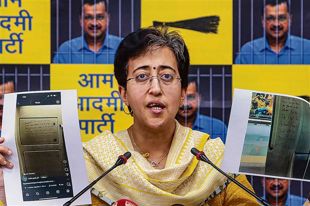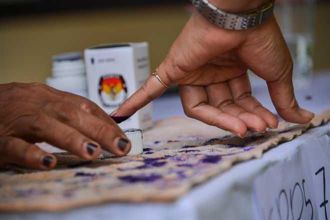
MANY reports and surveys, including the National Family Health Survey 2020-21 (NHFS-5), have thrown up alarming data on the rising incidence of non-communicable diseases (NCDs) in India like hypertension, obesity, diabetes and cancer.
Rakesh Kochhar
MANY reports and surveys, including the National Family Health Survey 2020-21 (NHFS-5), have thrown up alarming data on the rising incidence of non-communicable diseases (NCDs) in India like hypertension, obesity, diabetes and cancer. It is in this context that the WHO report released last month, ‘The growth of ultra-processed foods in India: An analysis of trends, issues and policy recommendation’, assumes significance.
A major reason behind the increase in NCDs, apart from the lack of physical activity, is the change in dietary habits and availability of processed, easy-to-cook or pre-cooked food. In real terms, almost all food is processed to some extent except for raw fruits and vegetables. A food classification system called NOVA classifies foods into four groups, according to the level of processing.
Group 1 includes minimally processed or unprocessed foods through drying, pasteurisation and freezing, etc, without adding salt, sugar, oils or fats to the original food.
Group 2 includes ingredients obtained directly from group 1 foods or from nature, like oils and fats, sugar and salt.
Group 3 has processed foods using preservation methods like canning and bottling by adding salt, sugar or other substances to group 1 foods. The aim is to enhance the shelf life and taste.
Group 4 contains ultra-processed food having ingredients rarely used in home kitchens. These include artificial food additives, preservatives, colours, emulsifiers, texturising agents, taste enhancers, etc. These foods are highly addictive and unhealthy. The list includes soft drinks, sweet or savoury packaged snacks, chips, salted and fried savouries like namkeen, mathris, chocolate, ice cream, mass-produced breads, buns, biscuits, cakes, breakfast cereals, processed meat, instant soups, noodles, etc.
The WHO report on India has flagged five ultra-processed foods — chocolate and sweet confectionery items, including biscuits; soft drinks, squashes, packaged juice, energy drinks; salty snacks like chips and Indian savouries; readymade sauces, instant noodles, soups, frozen and processed meat products; and breakfast cereals like corn or other flakes and muesli.
Most of these foods have extremely high levels of sugar, salt, artificial sweeteners and are made using hydrogenated oils or trans-fats.
Increased use of ultra-processed food has been linked to a high risk of obesity, type 2 diabetes, hypertension and some cancers. These foods can also cause food addiction, depression and anxiety.
A UK study (2008–2014) found that increasing consumption of ultra-processed food has led to a higher intake of carbohydrates, free sugars, total fats, saturated fats and sodium, and a significant decrease in healthy nutrients like protein, fibre and potassium, raising the risk of hypertension, obesity and diabetes.
Ultra-processed foods also contain preservatives. Their use has been linked to metabolic perturbations, alterations to the gut microbiota, inflammation, and colon carcinogenesis (cancer) in mice. Artificial sweeteners like sucralose and saccharine generate inflammation in the body, raising risk of cardiovascular diseases.
The consumption of such foods is rising because these are highly palatable, aggressively marketed, have large portion sizes and are ready-to-consume. Coupled with rising sedentary lifestyles, this is a recipe for disaster.
The way forward
- India is one of the first countries in the WHO South-East Asia Region to develop a National Multisectoral Action Plan for Prevention and Control of Common NCDs. However, we need to have data-based studies on the size of the ultra-processed food market. There is a paucity of data about traditional foods like mithai and street foods cooked in hydrogenated oils.
- We need to move towards a nutrition-based tax model, focusing on higher taxes for products with sugar, salt or fat beyond recommended levels and lower taxes for the healthier options.
- India needs to have labelling and packaging guidelines with health warnings. Some countries have come up with health star rating, nutrition-based colour coding, etc.
- The huge unorganised food processing sector in India must be brought under regulatory control. Public awareness campaigns are much needed.
— The writer is former president, Indian Society of Gastroenterology
Join Whatsapp Channel of The Tribune for latest updates.



























